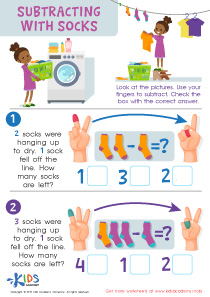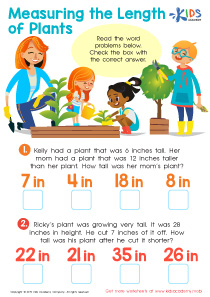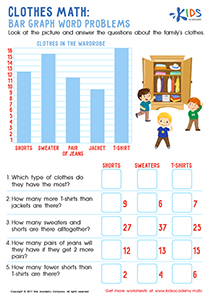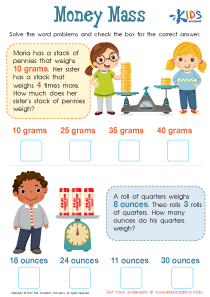Addition skills Grade 2 Addition and Subtraction Word Problems Worksheets
11 filtered results
-
From - To
Enhance your Grade 2 students' mathematical abilities with our engaging addition and subtraction word problems worksheets! Designed specifically for second graders, these printable resources provide a fun and interactive way to practice and master addition skills. Each worksheet features relatable scenarios that encourage critical thinking and problem-solving, helping students apply their math knowledge to real-life situations. By working through these word problems, children will not only reinforce their addition skills but also develop their comprehension and analytical abilities. Ideal for classroom activities or home learning, our worksheets are perfect for preparing students for success in math. Explore the world of addition today!
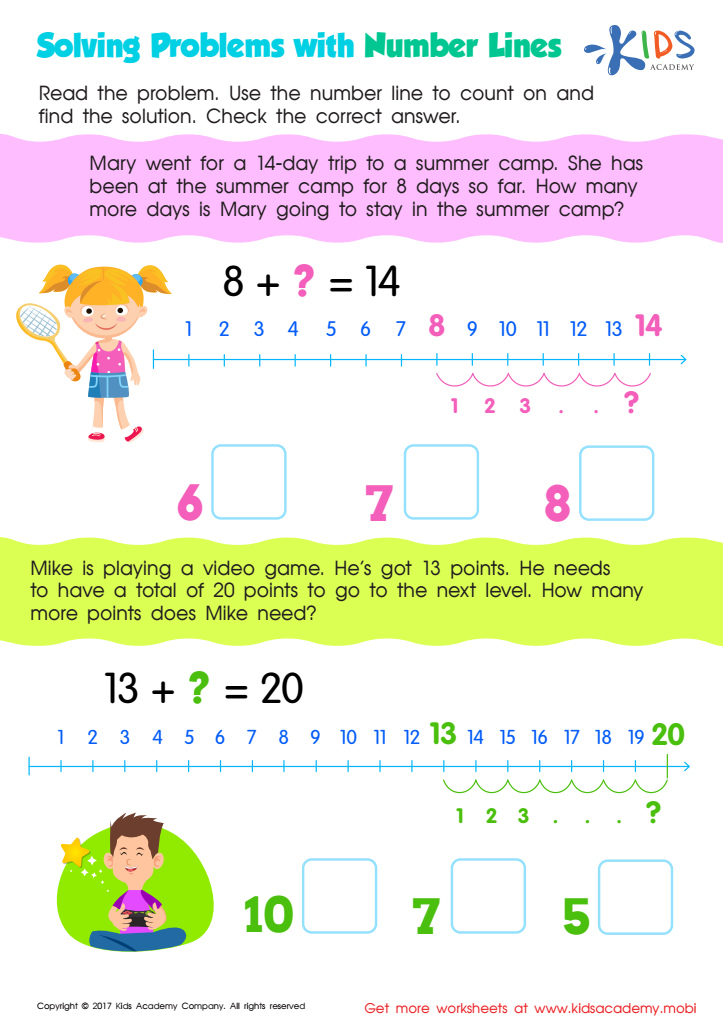

Solving Problems: Number Lines Worksheet
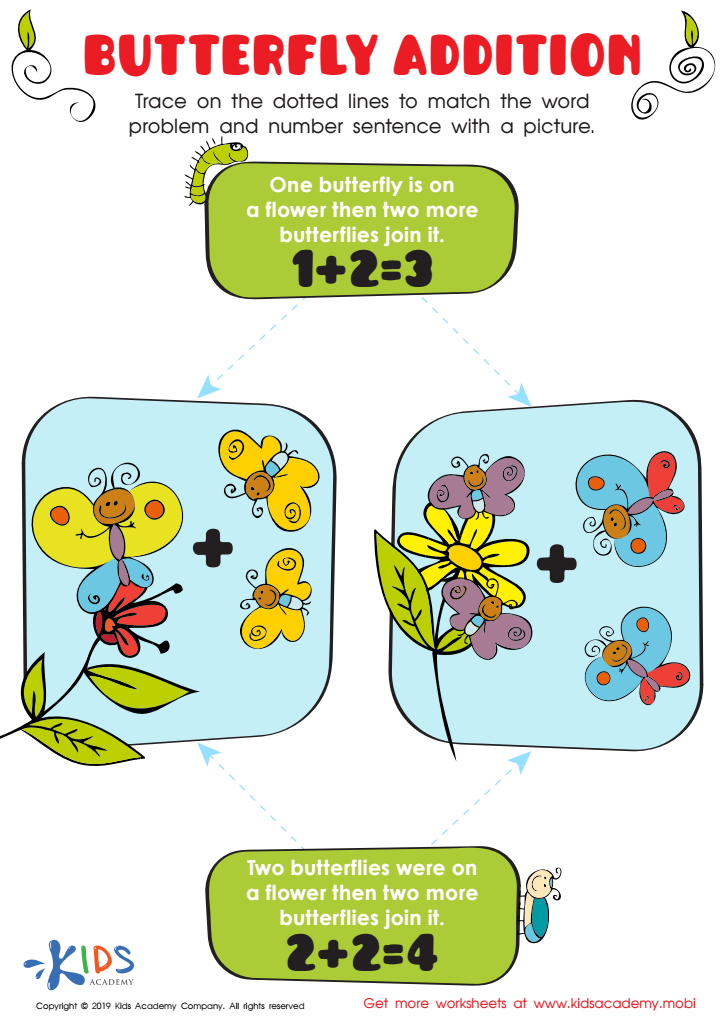

Butterfly Addition Worksheet
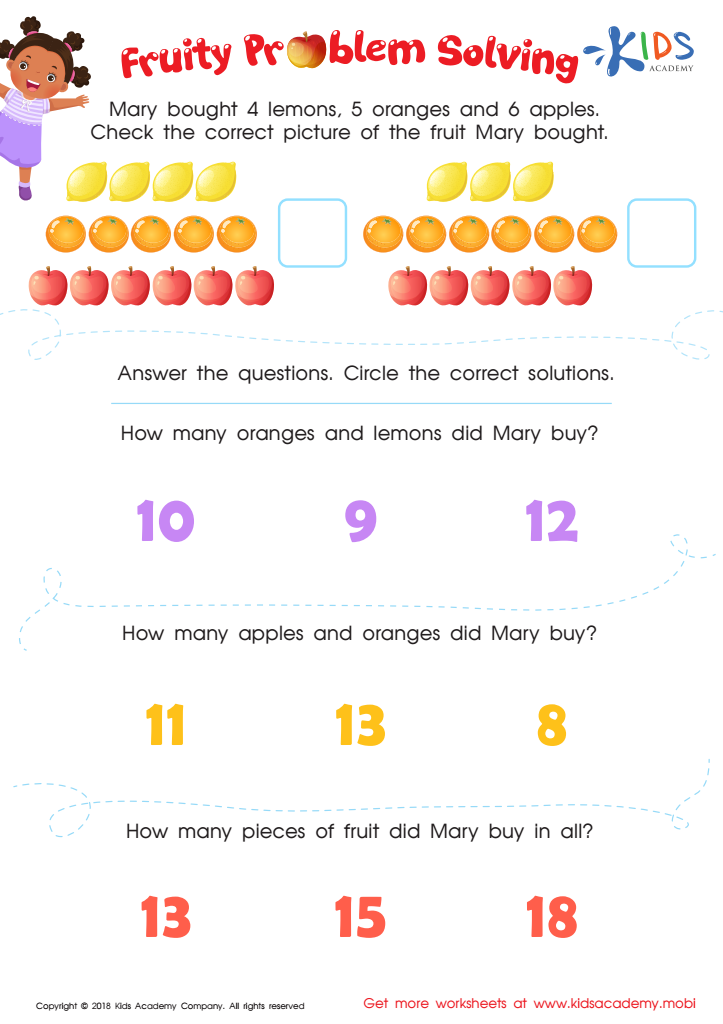

Fruity Problem Solving Worksheet


Adding Flower Petals Worksheet
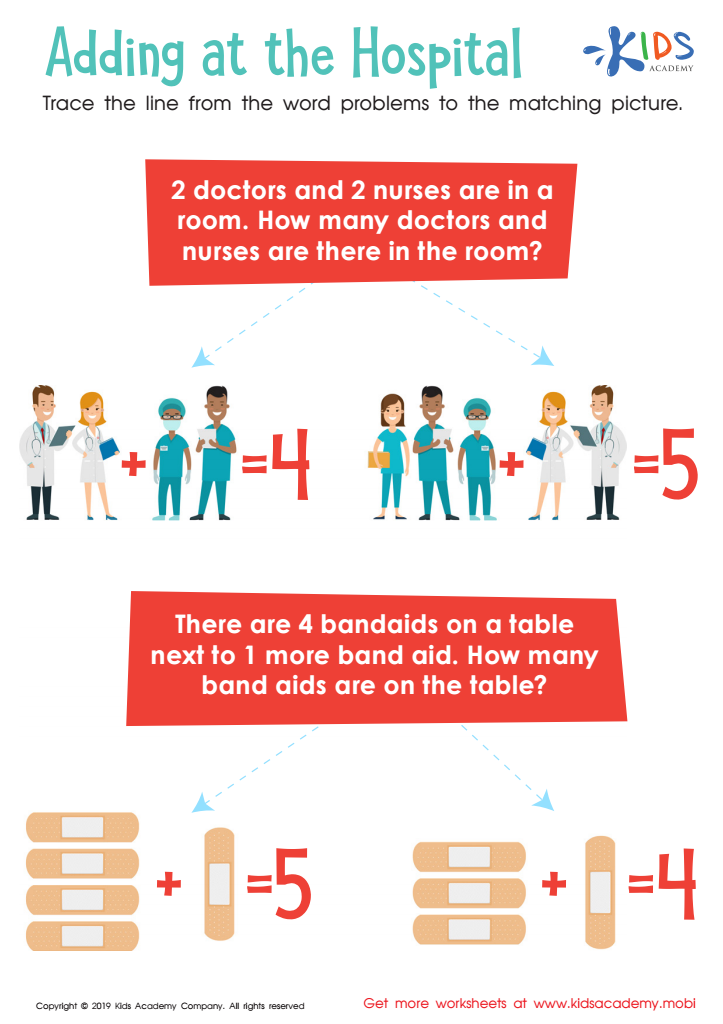

Adding at the Hospital Worksheet
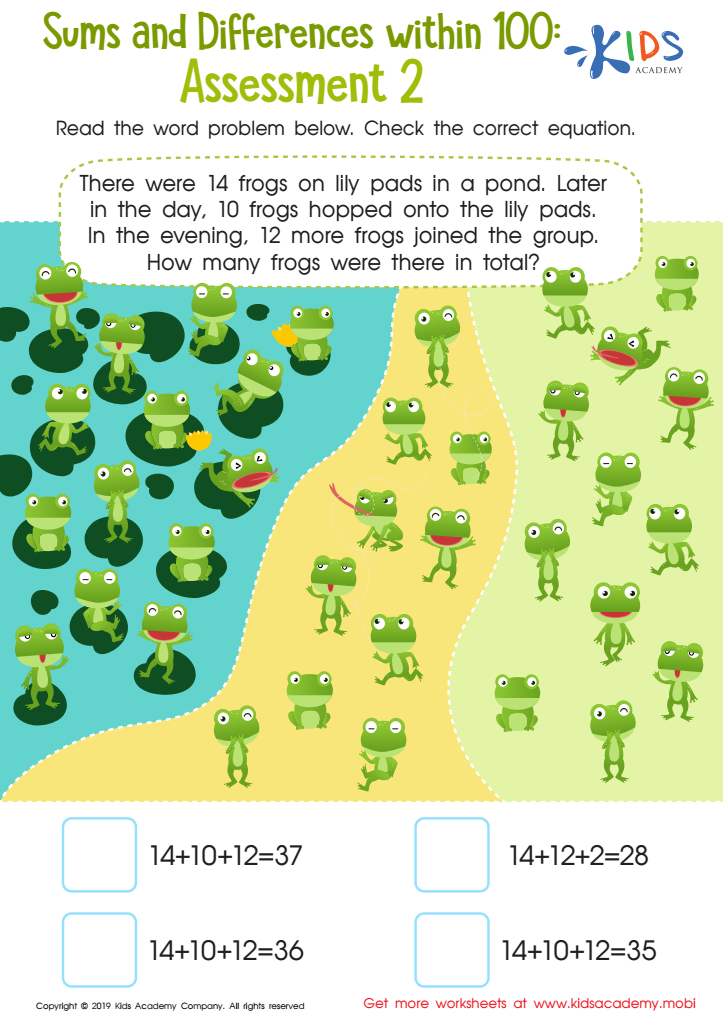

Sums and Differences Within 1 - Assessment 2 Worksheet
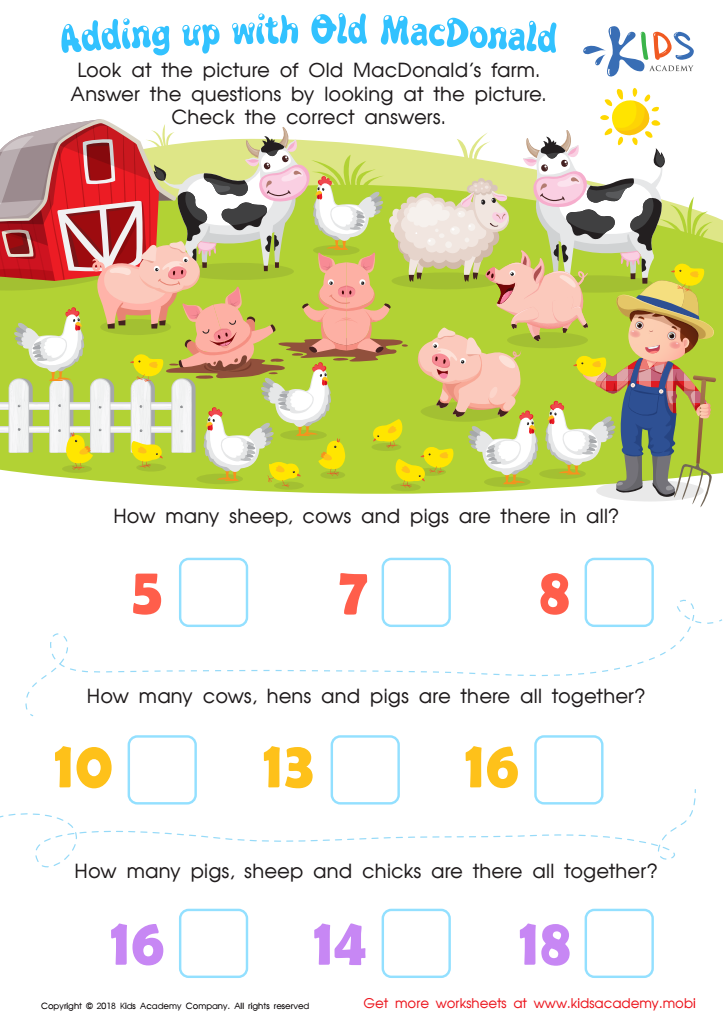

Adding Up with Old MacDonald Worksheet
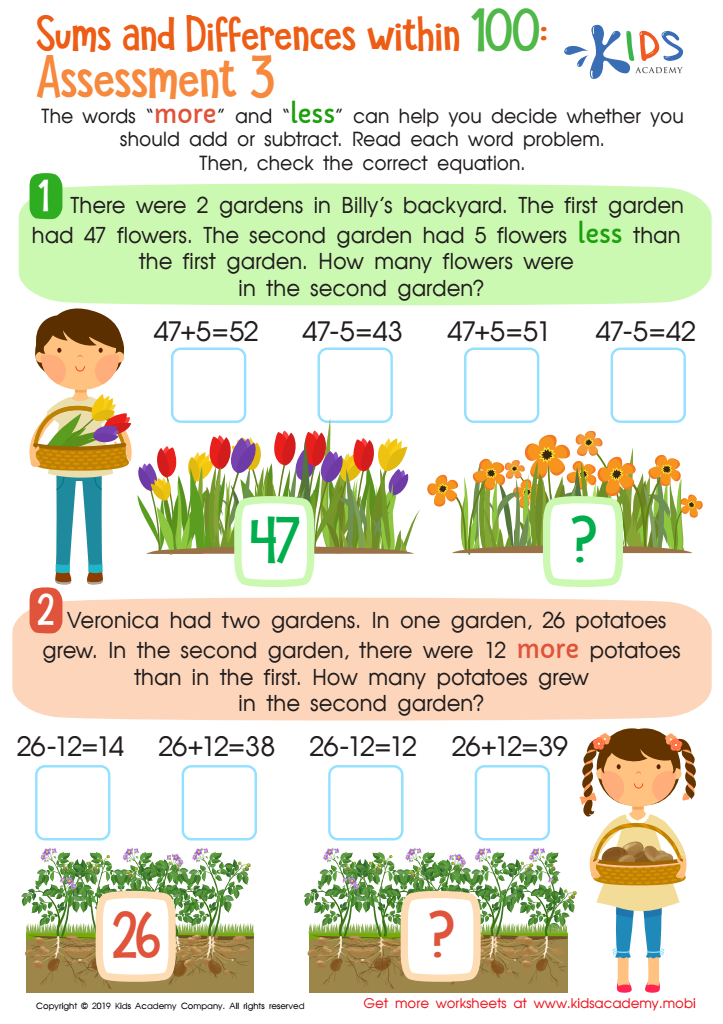

Sums and Differences Within 1 - Assessment 3 Worksheet
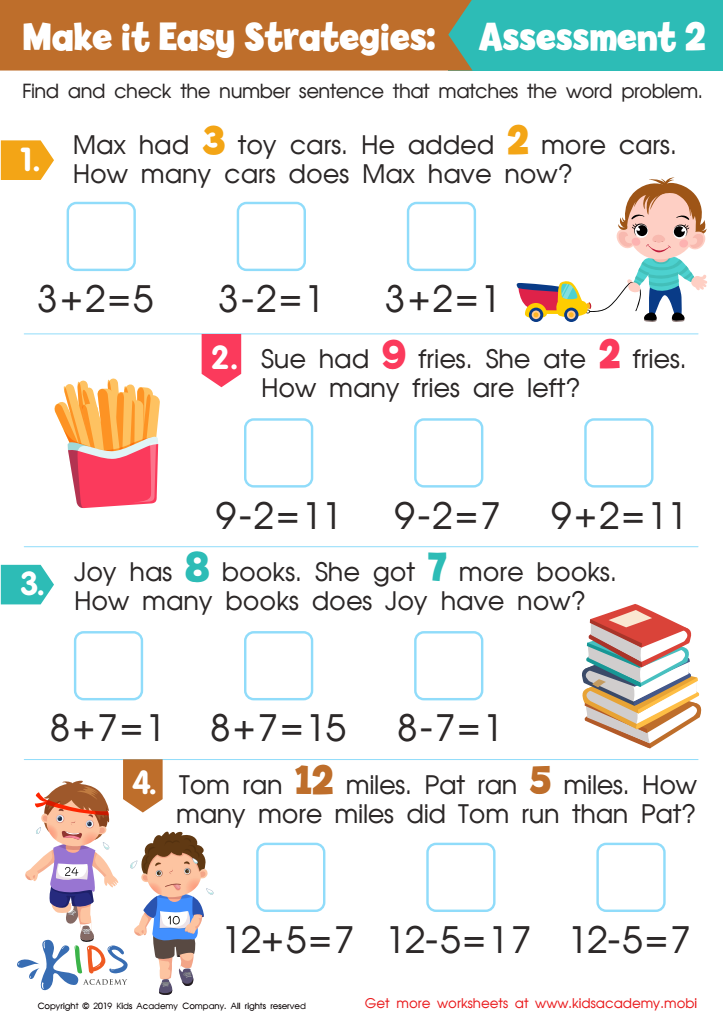

Make it Easy Strategies: Assessment 2 Worksheet
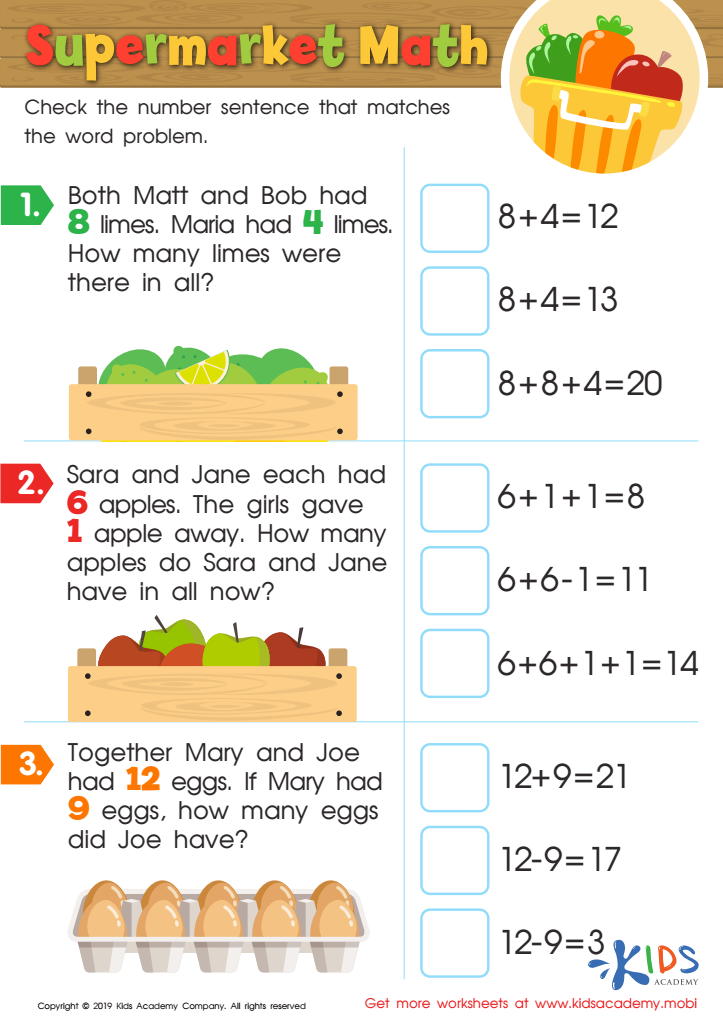

Supermarket Math Worksheet
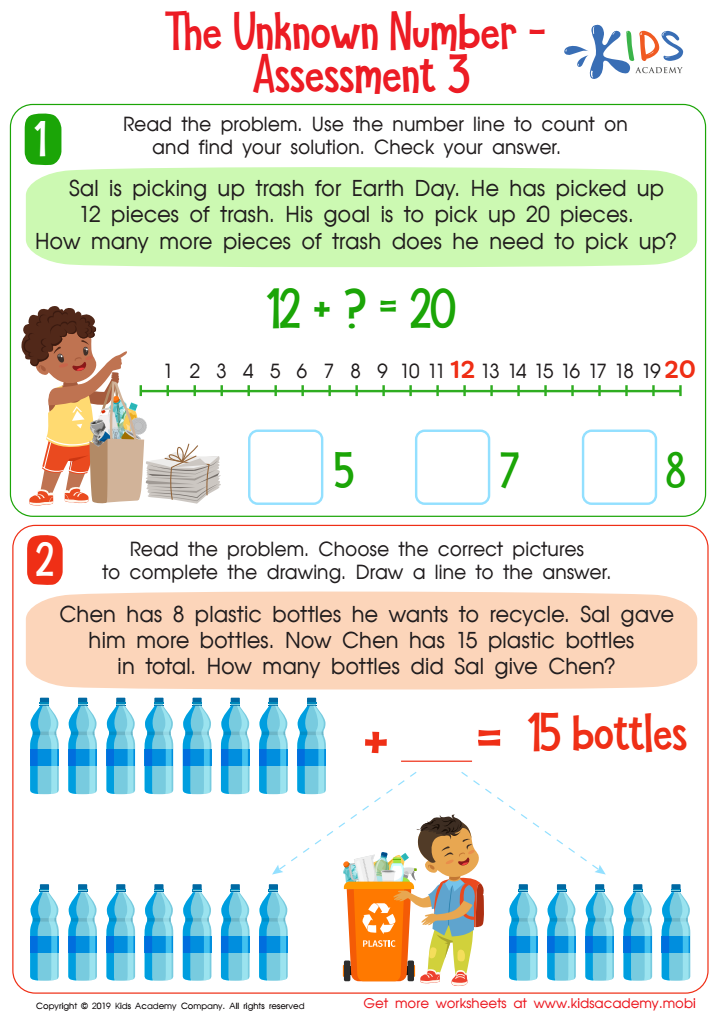

The Unknown Number - Assessment 3 Worksheet
Parents and teachers should prioritize developing addition and subtraction skills through word problems in Grade 2 for several important reasons. First, these skills form the foundation for higher-level math concepts. Proficiency in basic arithmetic enables students to tackle more complex problems in later grades, ensuring a smoother transition in their mathematical education.
Moreover, word problems enhance critical thinking and problem-solving abilities. By translating real-world scenarios into math equations, children learn to analyze situations and apply math concepts practically. This not only boosts their analytical skills but also fosters a love for learning and mathematics.
Additionally, mastering addition and subtraction word problems promotes comprehension and language development. Students learn to interpret language, identify key information, and articulate their thought processes clearly. This skill is transferrable across subjects, encouraging better reading comprehension and communication skills.
Engaging with real-life applications of math enhances motivation too. When children understand how math relates to everyday life—like sharing snacks or counting money—they are more likely to see the value in what they are learning. Consequently, nurturing these skills contributes to a well-rounded education, development of confidence in their abilities, and a positive attitude towards math challenges they will face in the future.
 Assign to My Students
Assign to My Students








